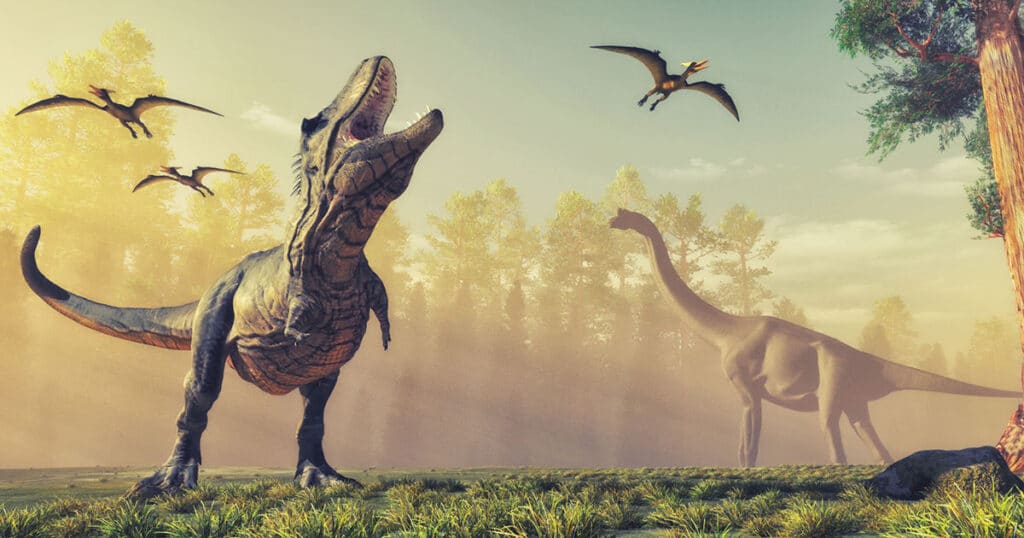Learning about dinosaurs can be a way to teach your kids much than the fact that these prehistoric monsters once existed. It can open up a world of scientific learning and discovery.

Young boys and girls don’t always want to have to “learn.” Motivating your kids to be educated in subjects that at first sound a bit bland can be tricky. The idea of having to learn about science can make many youth balk. By making it something fun, you’ll secretly be informing your kids while they have a ball.
Fascination with Dinosaurs
One thing that always seems to astound us — young or old — is the subject of dinosaurs. Something about these ancient creatures just inspires awe in people. Much has been written about dinosaurs, with plenty of TV shows and movies created as well (some more accurate than others) about them.
Should your kids be interested in dinosaurs, there is a lot you can tie-in with a variety of subjects in the field of science. Through teaching your young children about Dinosaurs, you will give them a solid science background they can utilize throughout their years of school.
Different Classes of Animals
In nature, there are carnivores, herbivores, and omnivores. Dinosaurs made-up all three of these categories, with their own complex and varying food chains.
If you have a child, probably a boy, who loves to talk about big meat-eaters, discuss with them how a carnivorous dino would have possibly hunted in packs, solo, or even been a scavenger. Talk about herbivores and the theories about their group behavior.
You can use this discussion to lead into further talk about how different species adapted for assorted needs. A Dinosaur with a long neck could easily pick the leaves out of tall-trees, just as a small carnivore would have been able to squeeze into all sorts of tight-spots to catch fleeing prey.
Earth’s History and Evolution Theory
Incorporate the history of Earth as well, discussing how our planet looks a lot different now than it did millions of years ago. You can cover how areas that now are frozen-over may have once held tropical rain forests, and vice-versa.
This discussion of ancient Earth could easily incorporate more complex concepts in science such as dinosaur paleontology and evolution. Kids will love to hear how the dinosaurs of the past arguably didn’t fully go extinct so much as many evolved into an assortment of creatures we now see everyday. Many popular birds that clearly draw aspects of their body-features from ancient dinosaurs.
Engage Young Minds
Once your kids have gained some knowledge of dinosaurs, find fun ways to put it to test and provide engaging lessons. Perhaps watch a popular movie featuring dinosaurs and work with them to point-out what is and isn’t accurate in the movie — “Hey, shouldn’t some of these dinos have feathers?”
Also, as they hopefully gain a further thirst for knowledge in the field of science, find ways to tie their initial interest in dinosaurs to other loosely related subjects. Discussions of theories regarding how dinosaurs went extinct can incorporate talk of greenhouse gasses, volcanic winters, and other atmospheric concepts theorized to have greatly contributed to the demise of many dinosaur species. And don’t forget astronomical theories — e.g. an asteroid hit Earth and killed off much of life.
Dinosaurs can be a great point-of-entry into discussing a wide range of science subjects thanks to their being so fascinating and fun. Plus, who knows, you might learn some cool dino-facts yourself too!